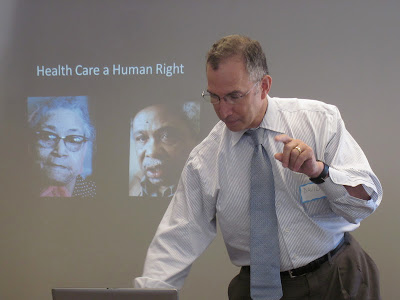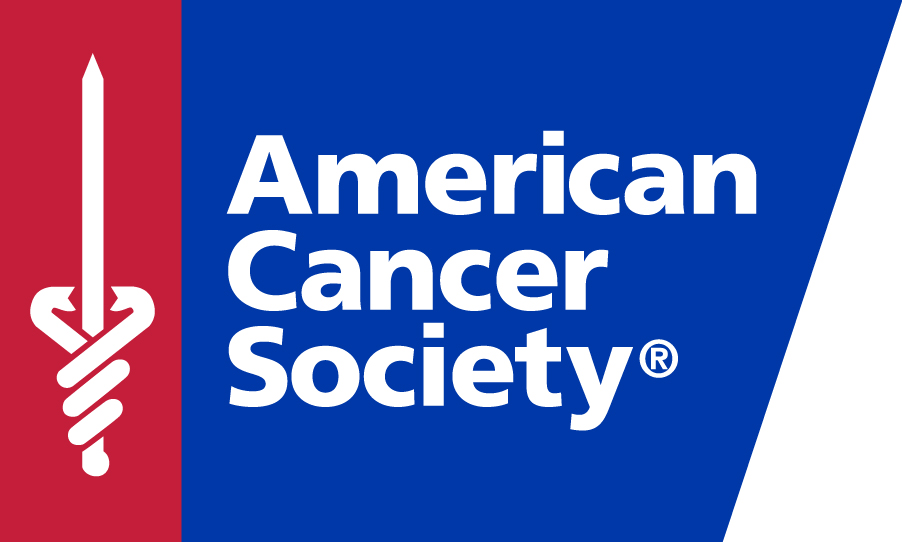Post written by CHC member, Neerja J.
The Chicago Health Corps gathered for their final in-service last Friday, June 22nd, at PHIMC. It was a bittersweet day filled with a lot of reflection about our past months of service, and presentations on many health issues that remain to be addressed in Chicago and across the globe.
We began the day with a member check-in facilitated by the Team Building Committee in which we shared a current struggle at our host sites, a memory from our host sites, and our favorite thing about the CHC. Obviously, “Rattlin’ Bog” made the list, as well as other accomplishments like the garden started by CHC members James, Maggie, and Sydney at Monarch Community Garden. Many of the members also mentioned that they would miss the kids they had taught and worked with this past year through their host sites, and that it was harder than they expected to say goodbye. I know that I personally will miss being at and working with the patients at Stroger every day.
Next, CHC member Carly Kruse introduced us to the realm of global health. She identified many of the pros and cons to foreign aid, and discussed the emergence of research programs dedicated to global health. Carly even shared "The Joy of Stats" with us to emphasize how cool and important global health data can be!
Following Carly’s presentation, Dr. Laurie Carrier from Heartland International Health Center shared her experiences with providing medical care in a variety of countries, including Honduras, Palestine, and Kenya. She also discussed important considerations for choosing a global health experience. For example, the sustainability of the program, the length of time you have to offer and personal adaptability to changing conditions were all key factors that Dr. Carrier urged us to think about when choosing a health experience abroad.
After lunch and some important reminders from Karen about our Education Awards, we watched a documentary called Precious Knowledge about the struggle to preserve ethnic studies classes at Arizona’s Tucson High School. Afterwards, we discussed the stark differences of opinion on the classes between their participants and the politicians who fought to ban them, how these issues related to Chicago Public Schools, and alternative strategies the community could have used to prevent the classes from being banned.
 |
| Teambuilding is always a good time. |
The CHC then took a break with another team building activity, in which we made a giant web of twine in Millennium Park by holding onto a part of it and throwing the rest of the ball to a member who did something that stuck out to us over the course of our term of service. As CHC member Jess mentioned at one point, it was amazing to see how close we had all become over the course of the year compared to our first day of Pre-Service Orientation.
We ended the day with a discussion with Dr. David Ansell, MD, MPH, and author of County: Life, Death, and Politics in Chicago's Public Hospital. A number of CHC members had read and discussed the book prior to the event, and were excited to be able to hear from Dr. Ansell in his own words about his experiences at the old Cook County Hospital. He discussed healthcare as a human right, and the social determinants of health that prevent thousands of Chicagoans from exercising this right. Finally, Dr. Ansell answered questions from the CHC members, other AmeriCorps members, and volunteers in the audience about the Affordable Care Act and other topics.
At one point during his talk, Dr. Ansell mentioned that his goal in discussing County with groups was to inspire at least three people to advocate for equal access to healthcare for all. Based on the reflections I heard throughout the day from the CHC, whether they were about future plans or the wealth of experiences we’ll take with us from the students and patients at our host sites, I have no doubt that I had the privilege to spend a year in service with fourteen other people who intend to do just that.

















